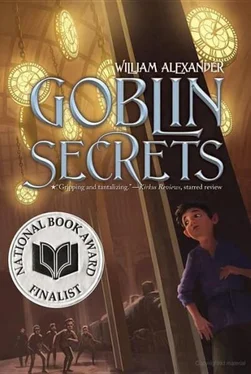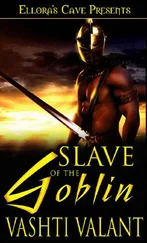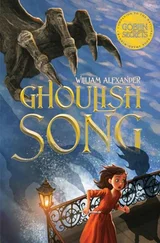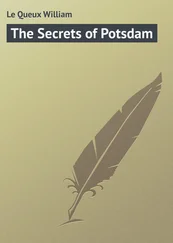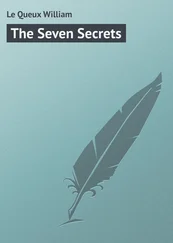Graba had cursed the troupe and all of their doings. Grubs would follow wherever they went. Burning birds would fly screaming down at them until the stage and wagon caught fire, and they all burned with it—unless the River rose up in a flood before Graba had the chance to burn them. Bad things were coming—in water or in fire or both at once.
Semele pointed to a spot on the southern side of the ravine. “There,” she said. “That is the place we should be aiming for, yes.”
Nonny steered them to where Semele had pointed. She tossed a grappling hook, grappled riverside tree roots with it, and roped the raft to shore. Then she stopped the spinning paddle contraption and climbed inside the wagon. The raft drifted at the end of its tether.
Rownie looked around. The place did not seem in any way special. “Why this spot?” he asked.
“This is our climbing place,” Essa told him. “We need to get up to street level, to drive back into town.”
Rownie looked up. The ravine was steep and very high. It did not look climbable. “We’re going to climb that?”
“No, no, no, no,” Essa said. “Definitely not. Nonny is going to climb and let down a rope, and then hoist the wagon back up to shore with a winch and crane.” She made it sound like a very easy thing to do. “The winch and crane are both already up there. Smugglers use them to carry things into Zombay without having to go through the dock wardens, but they haven’t used it very much lately. I don’t think so, at least. Hopefully there are no smugglers trying to use it right now.”
Nonny came up through a hatch in the wagon roof. She had several tools in the loops of her belt. Without saying good-bye—or anything else—she stepped nimbly across the rope between the wagon and the shore, and started climbing.
“Shouldn’t take too terribly long,” Essa said. Her fishing line tugged, and she started jumping up and down. “Hey, I got something! Fresh dinner, everybody! Fresh dinner!”
Essa hauled a mass of green tangles onto the raft. It landed with a splat.
“Hmm,” she said. “Never mind. We could make a riverweed stew, I suppose, but the only time I’ve ever known a riverweed stew to taste good was when we left out the actual weeds, so I should probably just toss them back in.”
No one else said anything.
Essa climbed quietly down to the edge of the raft and kicked her catch of weeds into the River. The green tangle sank out of sight. “I remember making wishes on riverfish, as a little girl,” she said, “though I don’t remember what the wishes were. And I was just as little as I am now, I guess. We don’t get any taller, not even if we live for a thousand years.”
“Do you usually live for a thousand years?” Rownie asked.
“No,” said Essa. “Usually someone accuses us of child-thieving or butter-thieving or button-thieving or whatever a very long time before we get to be a thousand, and then they come for us with torches. Semele’s the only one I’ve known who’s anywhere near that old.”
“Oh,” Rownie said. He looked up. He couldn’t tell if Nonny had reached the top of the ravine yet. Then two coils of rope came sailing down and smacked against the wagon, so he figured that she probably had.
Patch and Essa tied the ropes to the axle beside each wheel, and then untied the wagon from the raft. Essa gave a long, high whistle. The ropes began to pull. The wagon lifted, suspended in the air. Something shifted inside it and made a crashing noise.
“I’ll try to salvage our belongings,” said Thomas from inside his hat. “Essa, some help would be very much appreciated.” He opened a hatch and let himself in. Essa followed.
“I will go in as well,” said Semele. “Be careful, both of you.”
Rownie and Patch watched the raft and River drop farther away beneath them.
“We’re just going to leave the raft?” Rownie asked.
“Nonny’ll build another one next time,” Patch said. He gave up fishing and used his pole to push at the side of the cliff whenever the swinging, swaying wagon got too close to it.
Afternoon ended and became evening. The sun was going down. Colors of the dying day bounced up from the River, reflected. The River surface looked very far away now, but the top of the cliff seemed no closer.
Rownie looked at Patch sideways. He had something he wanted to ask, but he thought that it might be a rude question, and he didn’t know what words to use. Finally he just asked.
“How did you Change?”
Patch did not answer. He went on keeping the wagon clear of the cliff with his fishing pole.
Rownie waited. He waited for so long that he figured Patch would never answer.
“Used to have brothers,” Patch finally said. “Lots. More than the family needed. Some left home to be soldiers. One left to study. Still too many. I was youngest, so Father took me to the wagons for Changing. Then he put me in the barn. Good luck to keep something Changed in the barn. A guardian. A thing to keep other monsters away. Stayed there a long time, keeping the sheep safe.”
“How long?” Rownie asked.
“Don’t remember,” said Patch. “Years all blurred together. Left after a while. Joined a show. Not a good one. Did the Weasel Dance. Drop a dozen angry weasels in your pants and jump around while they fight. Crowds love it. Wore thick leather underneath to keep skin on my legs. Still uncomfortable. Weasels died in every show. All I got to eat, after. Semele’s shows are better. So’s the company. So’s the food.”
Rownie agreed. He was glad he didn’t have to do the Weasel Dance to keep himself fed—though a nightly meal of weasels would be better than no meal at all, and supper was rare in Graba’s household. Meals with the troupe were very much better.
He heard Graba’s voice in his head and memory. Did you eat what they gave you? Did you drink what they offered?
He checked his ears again to see if they had grown any pointier.
“How did the Change actually happen?” he asked, hoping for details. He wanted to know if he was Changing. He needed to know whether or not it would be a good thing if he did. “Was it from eating charmed food or something?”
Patch shook his head. “Can’t remember. Too long ago. Sorry.”
The sun set. The sky grew dusky and dim. The top of the ravine actually did seem closer now, and the view was just as wide and expansive as the one from the Fiddleway.
Something moved over Rownie’s head, and he heard pigeons. He felt the tips of wing feathers brush against his face as a pigeon dove between him and Patch.
It circled back around and dove again. Patch smacked it aside with his fishing pole. It screamed at him, indignant. More birds joined it with answering cries, and the air became a furious, screaming mess of wings and sharp feet. At least none of them are on fire , Rownie thought as he ducked beneath another dive-bombing pigeon. He tried to get the hatch open, to take shelter inside.
In one sudden moment, three birds flew at Patch’s face and knocked him off the wagon. He fell down and farther down.
Rownie crawled to the edge. He saw a splash far below them. That was all he saw.

NONNY STOOD AT THE EDGE of the cliff and brandished a sling. She shot at the attacking birds until there were no more birds to shoot. Then the winch finished its work, and the crane hoisted the wagon up onto the ground.
Once they had untied the wagon, Nonny looped one foot through the dangling rope and hoisted herself back over the River, over the edge of the cliff.
Читать дальше
